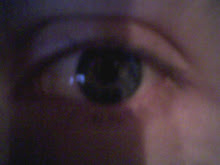MILES:
Chapter One
* * * * *
I
* * * * *
KAREN BAYER was thirty-six but looked and, most days, felt ten years younger. Even with two bouncing boys she had retained her athletic-yet-womanly figure; her legs were long and slender, and her dark eyes shined with a quiet wisdom, a peaceful sense of well-being, a love for all things. And when she smiled, and she smiled often, her eyes lit up with a look of mischief, like she held a secret she was eager to share.
Michael was six and Gabriel was four, and they both looked like their father. John Bayer was a tall, handsome man, with a dark tan and broad shoulders. He worked for City Water, a steady and well-paying job that afforded him evenings and weekends with his wife and children, and two weeks vacation every year.
His sister lived in San Francisco, and she had invited them to spend their annual excursion with her, so they packed their bags and left their quiet home in the sleepy corner of Twin Falls for the long drive into California.
That is how it began.
* * * * *
I I
* * * * *
DOC BROWN grabbed a wet washrag; someone had spilled on the counter. Doc Brown dragged the cloth across the smooth surface of the bar. There was something comforting about this action, this simple motion. This was his bar; he was the sole proprietor and the sole employee. Occasionally he would hire Drew Parker over the summer, when Drew was out of school and needed some money for the summer, but he paid Drew under the table, and that was only two or three months out of the year. He was helping keep Drew out of mischief, Doc Brown told himself, and teaching some responsibility while he was at it. The truth was, he liked the Parker boy; he liked the company and he liked the wild tales Drew told of off-roading his four-by-four and long nights with teenage girls behind the outdoor cinema. But Drew graduated High School last spring, and Doc Brown would have to find someone new.
He drew the rag across the mess and dropped it in the bucket of cleaning solution under the ice machine, and shuffled over to the drying racks where he had been hand drying freshly scrubbed pint glasses. Doc Brown was a heavyset man in his early fifties, with a heavy brow and a wide nose, and a head as bald as a monk. He took great pride in his appearance, and he took great pride in the appearance of his bar. Under his apron his shirt was neatly starched, his bowtie straight and neatly tied. Doc Brown’s Pub and Eatery: Hot Food and Cold Drinks was meticulously cared for; Doc Brown swept nightly and mopped daily, he dusted the every surface. The faucet dripped in the sink behind the bar; the plumbing hadn’t worked since he bought the establishment, but he’d never been able to fix. Plumbing was his Achilles heel; no matter how many knobs he turned or valves he replaced, he had never figured out what was wrong. He looked across the room at the mostly quiet crowd gathered for the evening. A decent turnout for a Wednesday night.
Patterson Malone was already drunk and nodding off his in chair; he’d soon pay his tab and stumble home.
Across the bar, Del raised two fingers; he and his brother Willie needed another round.
Doc Brown delivered the drinks, and on his way back noticed something unusual about the front of the bar, something he must have missed when he opened the bar this afternoon. A distinct chunk was missing from the edge of the counter; a piece of the molding had been knocked free. Not wanting to draw attention, he ran his fingers across the textured edge as he walked past to confirm what he suspected; a heavy blow had damaged the decorative edge of his bar. He glanced up, nervously, but no one in the bar was paying any attention to him. He’d fix that tomorrow before opening the bar – a little sandpaper and a spot of stain and it would be good as new. No one would ever notice that it had been damaged. Good.
Some things were best forgotten quickly.
No sign of the Braeburn boy. Good. Miles was problematic, unsettled, unpredictable; most nights he sat and drank the evening away without a sound, but some nights he’d go into one of his fits, create all kinds of fuss and the town would talk about him for days. But it was a small town, and people kept mostly to themselves. Whatever disturbances Miles caused were quickly forgiven; he had lived in the city long enough to be one of them.
It would be a quiet night.
Not like last night.
